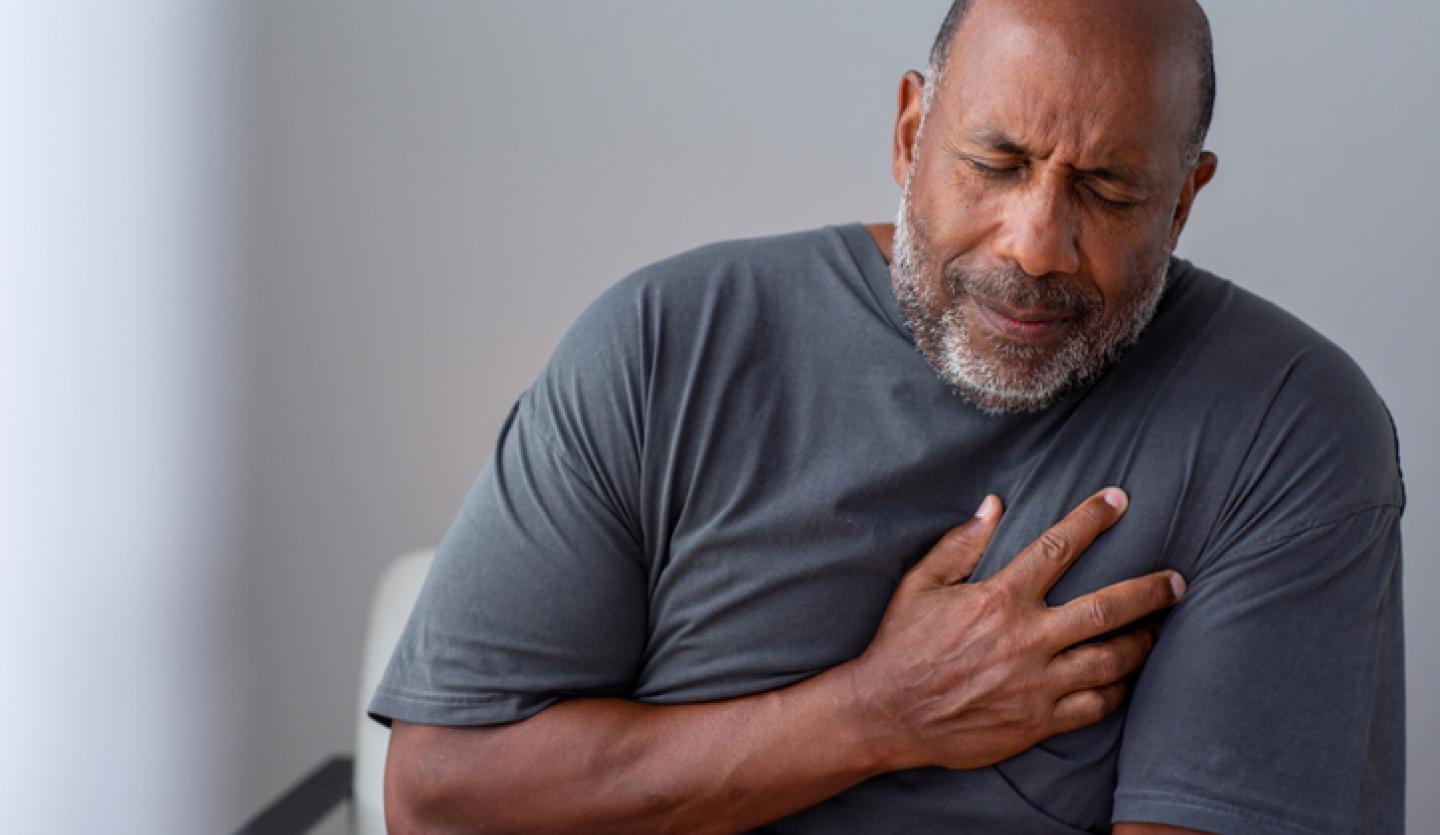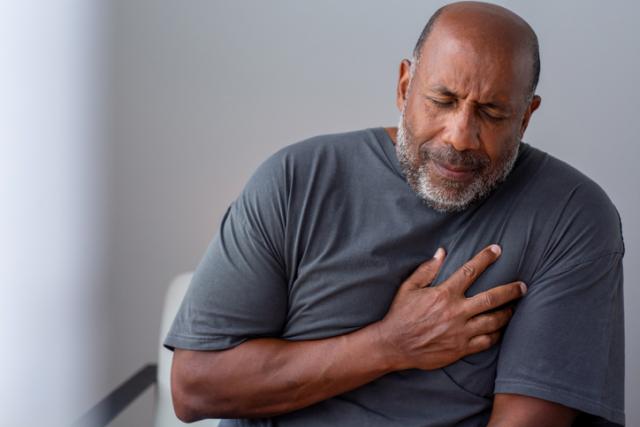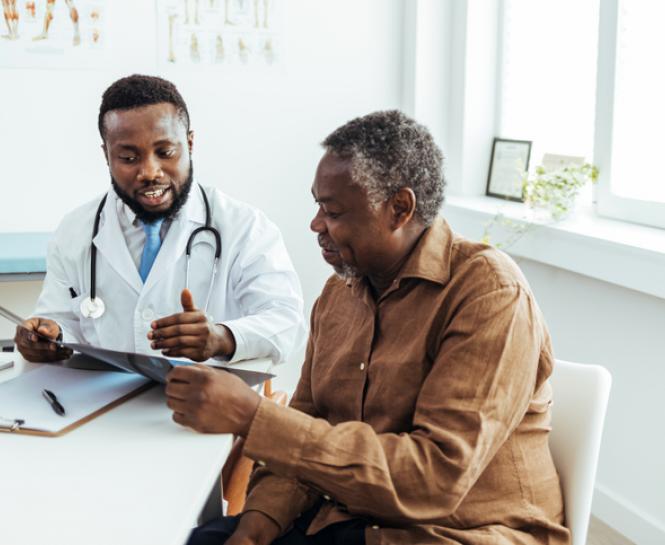"Heart attack symptoms can vary by person. For women, the symptoms often differ from those in men," said Catholic Health cardiologist Dr. Louise Spadaro. "Recognizing the signs of a heart attack and not waiting to seek help is critically important. I tell my patients to never second guess or self-diagnose. Seek medical care immediately. Time is muscle."
Would you know if you or someone close to you was exhibiting signs of a heart attack?
A cardiac event often starts slowly, with mild discomfort or pain. You may think your indigestion merely results from what you had for dinner. Or cold sweats and nausea are symptomatic of the flu. But those symptoms could indicate a more serious health problem.
It is essential to recognize the signs of a heart attack to get care and quickly limit damage to the heart muscle.
Don’t dismiss what you’re feeling. Call 9-1-1 immediately if you or someone close to you is showing signs of a heart attack.
What is a heart attack?
A heart attack, also called a myocardial infarction, occurs when blood flow to the heart muscle is blocked or significantly reduced. In most cases, this blockage results from a buildup of plaques (cholesterol, fats or other substances) in the coronary (heart) arteries.
What are the signs of a heart attack?
The most common symptom of a heart attack in men and women is chest pain (angina) or discomfort. The pain may feel like tightness, squeezing, aching or pressure.
Other pain may accompany chest pain, such as pain that radiates to other areas of the body, including the shoulder, back, arm, jaw, neck, teeth or upper abdomen. In some people, chest pain can occur for hours, days or weeks before the heart attack.
Other signs and symptoms of a heart attack vary from person to person and may include one or more of the following:
- Cold sweats
- Dizziness or feeling lightheaded
- Fatigue
- Heartburn
- Indigestion
- Nausea
- Shortness of breath
How Heart-Healthy Are Your Habits?
Our quiz helps you make lifestyle choices that improve your heart health.
Are heart attack symptoms different in women?
Women are more likely than men to have heart attack symptoms that may not include chest pain, such as:
- Shortness of breath
- Nausea/vomiting
- Back pain and jaw pain
- Symptoms at rest
- Symptoms that wake you up from sleep
What are the risk factors for a heart attack?
Males over 45 and females over 55 are at a higher risk of a heart attack. Other factors that can increase your risk include:
- Autoimmune diseases, such as lupus or rheumatoid arthritis (RA)
- Diabetes, especially uncontrolled high blood sugar
- Exposure to secondhand smoke
- Family history of heart attacks, especially at a young age
- High blood pressure (hypertension)
- High cholesterol
- High levels of stress in your daily life
- Illegal drug use
- Not getting regular physical activity
- Obesity
- Preeclampsia during pregnancy
- Smoking and using tobacco products
- Unhealthy diet high in animal fats, sugar, trans fats and processed foods
Can I reduce my risk of a heart attack?
You can take steps to help reduce your chances of having a heart attack. These include:
- Achieving and maintaining a healthy weight
- Avoiding illegal drugs
- Avoiding tobacco products
- Controlling diagnosed health conditions, such as hypertension, high cholesterol, diabetes, lupus and RA
- Eating a heart-healthy diet
- Getting regular physical activity
- Reducing stress in your everyday life
What should I do if I am showing signs of a heart attack?
Remember not to dismiss your symptoms or self-diagnose them. Call 9-1-1 immediately. Let emergency medical technicians assess and immediately begin treatment if needed when they arrive. Saving heart muscle and alleviating a more serious health condition is more likely when someone is stabilized quickly.
Take steps today to improve your heart health
Make an appointment with a primary care physician (PCP) who can help you make lifestyle adjustments or refer you to a cardiologist for further examination.
Find care at Catholic Health
All Catholic Health hospitals in Nassau and Suffolk counties have 24-hour, seven-days-a-week emergency departments that can treat patients presenting with a heart attack.
In addition, Catholic Health is home to St. Francis Heart Center, Long Island’s most-awarded heart program. Cardiac patients have access to the highest level of care to treat a heart attack.
Our chest pain centers at the St. Francis Heart Center at St. Francis Hospital (Roslyn, NY), St. Catherine of Siena Hospital (Smithtown, NY) and Good Samaritan University Hospital (West Islip, NY) provide prompt, highly skilled assessments and treatment of acute chest pain in a matter of minutes.
Learn more about our chest pain centers.
Learn more about our cardiology services.
Call 866-MY-LI-DOC (866-695-4362) to find a Catholic Health physician near you.







